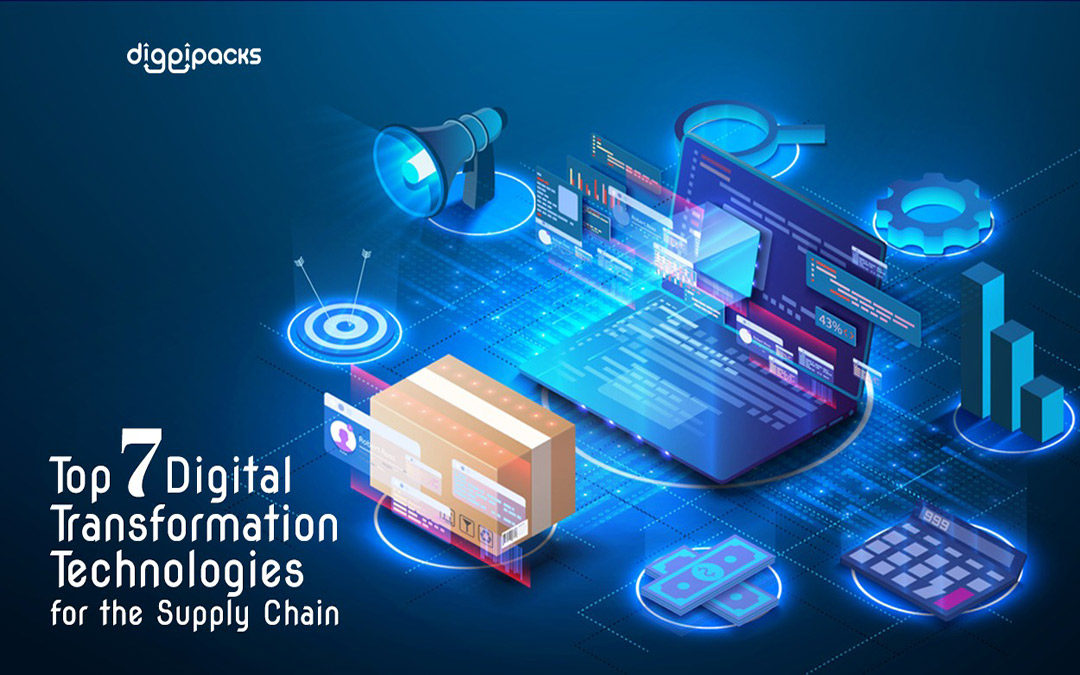In the midst of the technological revolution that we are living in today, there is a possibility to significantly reduce inefficiencies and inefficiencies in the supply chain, through digital transformation, as many companies and institutions have committed over the past few years to implementing digital transformation strategies, and these strategies aim to bring about qualitative changes in Lots of corporate operations by applying business methods based on securing more analytical and collaborative capabilities; With the aim of developing an in-depth understanding of customer requirements and optimal service, achieving sustainable competitive advantages, enhancing levels of profitability, as well as reducing total costs, and in this article we will present to you the 7 most important techniques for digital transformation of the supply chain.
What is digital transformation?
Perhaps digital transformation is the most common sentence I heard during your meetings. The concept of digital transformation may be confused by some people. Some people think that as soon as one or two new programs are used, their company or institution is transformed digitally.
Digital transformation is the shift in the way of working in companies so that the chore decreases and the time of thinking increases, as it is the acceleration of the daily work method so that the great technology development that is taking place is exploited to serve your customers faster and better.
Digital transformation is the increase in efficiency in the workflow so that errors are reduced and productivity increased.
Digital transformation is increasing the number of your team members without the need to employ. Simply put, digital transformation is making use of technology for people to work.
Top Digital Transformation Technologies for the Supply Chain

Business organizations, regardless of their size, need to keep pace with the development in technology, because technology has changed the way consumers think and behave.
Digital transformation has a huge impact and huge importance in the supply chain, and here are the top 7 technologies for the digital transformation of the supply chain:
1. Using Smartphones to ensure operational transparency
Smartphones have now evolved tremendously and are still under development as well. Smartphones can work like a personal computer, thanks to their ability to simulate computer processors.
Smartphones also offer their users many strategic advantages, as they are an effective way to communicate with other advanced technologies.
The smartphone became a powerful non-stop navigation system.
Smartphones have also become a tool for generating reports and an intermediary for logistics management programs as well, and they are available in everyone’s hands.
2. Synchronizing work processes with Cloud technology
It has become possible to integrate business data and associated activities and upload them to the cloud, which can integrate and help users eliminate traditional information retention methods, and also facilitate the way to contact external transport partners.
3. Connecting physical devices to the cloud with Internet of Things solutions
IoT solutions are of great importance in supply chains, especially as they make managing transportation or manufacturing activities easier and more efficiently.
It now has the ability to define the location, along with the ability to send the operational status to the manager in real time.
Thus improving corporate visibility, enhancing efficiency while minimizing wasted cost in corporate logistical activities.
4. Analyzing Big Data to restructure business operations
The Internet of Things has enabled data from all sources to be accessed for up to 500 TB, and advanced predictive analytics is a new trend in big data science.
This technology works on making expectations about customer demand, depending on the data recorded in the past, and this technology helps greatly in ensuring profitability and enhancing competitiveness in the market.
5. Applying Artificial Intelligence and Machine Learning to support decision-making processes

The use of artificial intelligence technologies will play a prominent role in saving a lot of time in corporate planning and reducing human errors.
Where the use of transport management strategies enhanced by artificial intelligence will help in enhancing the company’s productivity, in addition to its contribution in supporting all activities related to business and production in the logistical activities.
6. Automating business operations using robotics and autonomous vehicles
With the tremendous development that e-commerce platforms are witnessing, the logistics services industry is facing a shortage of qualified manpower for delivery operations, and thus a severe need for supply chain automation has emerged to ensure service quality as well as reduce the burden on the workforce.
7. Ensuring professionalism with Software as a Service solutions (Saas)
SaaS solutions help ensure a return on investment (ROI) and increase the flexibility of the supply chain and logistical activities of companies and these solutions can monitor logistical processes in real time, ensuring productivity and transparency.

Recent Comments